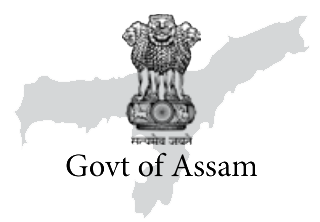It is a few minutes past nine in the morning. Like other days in recent times, Minoti Das (50) of Bathan village in Sualkuchi is busy storing potable water. This water to her and 677 more households in the village is being discharged from the reservoir of the Bathan Pani Jogan Aachoni under the Jal Jeevan Mission (JJM). “It is a routine for us to store clean and filtered water every morning ever since we got our tap connection under JJM. There are four of us in the family. The water supply we get under the scheme is enough for our daily needs,” says Das while talking to Asom Barta.
Minoti, whose husband owns a small tea stall at Sualkuchi Town Chowk area, belongs to a BPL family. “For us, it would have been almost impossible to install a deep tube well for potable water,” she says in her gratitude to the Government.
Sualkuchi is some 35 km northwest of Assam’s capital city of Guwahati under Kamrup district. It is a thickly populated rural area known as the largest silk weaving village in the world.
Villages in the area have been witnessing massive welfare-oriented measures by the State Government since 2016. “We have seen a spurt in development activities since 2016 here and its adjoining areas. It has created a feel-good factor among us,” says Nityanada Das, a native of the same village.
Minoti’s neighbour Anita Das (52), a weaver, has appreciation for the Government and the scheme. She says that previously she used to have water from handheld tube wells, locally known as ‘Domkol’ which had iron contents. “Now we have safe, clean, and filtered water from our tap connection. Our long standing problem of not having potable water is now a thing of the past,” a beaming Anita tells this reporter.
Arun Chandra Deka, a Public Health Engineering Department (PHED) Engineer, who is in charge of the technical and maintenance aspects of the scheme informs this newsletter that the plant’s modification, installation of new machineries and development of in-village piped water supply infrastructure was completed within the stipulated time. “The scheme has hitherto functioned well with active support from the locals.”
“Since the number of households in this village is over 700-plus, we have engaged two Jal Mitras to monitor the scheme on a daily basis. Besides, the village working committee of the scheme is also vigilant about it. Every day, we lift 1.60 lakh litres of water through our deep tube well machines. We store this in two reservoirs with good filtration facilities from where it is discharged to these households,” Deka says.

Jal Mitra Har Govinda Das informs this reporter that he looks after the day-to-day issues of the scheme to prevent any disruption.
For maintenance of the plant and to ensure smooth functioning of the scheme, the working committee has stiplauted a charge of ₹ 100 per month from each household.
Some 70 km northwest of Guwahati is Marowa village on the Nalbari-Hajo Road. It is one of the most thickly populated villages in Nalbari district. Marowa Pani Jogan Achoni, a water supply scheme in the area under PHE Department has been amalgamated with Jal Jeevan Mission scheme to benefit households in the village.
“The objective of JJM is to provide 55 litres of water per person per day to every rural household through Functional Household Tap Connections (FHTC). In this village, we have provided FHTCs to 783 families,” says Ankush Deka, an Engineer with the PHED, who is also in charge of this scheme.
A Jal Mitra here, Mantu Baishya, who was awarded at the JJM Conclave held at Nalbari town in the first week of July, is a happy man despite a hectic schedule.
“I love handling this work pressure. I look after most of the issues on distribution of water to households.”
Under JJM, the village community has been playing a lead role in planning, implementation, management, operation, and maintenance of in-village water supply infrastructure thereby facilitating FHTCs to every rural household. Sambhu Ram Bezbaruah, president of the Water Supply Users Committee, informs Asom Barta that piped water pressure is better in households near the water treatment plant but all households in the village get their regular quota. “We collect ₹ 50 each month from the beneficiaries for maintenance and other requirements of the PWSS.”
The Mugkuchi Water Supply Scheme is yet another success story under JJM. “The previous water supply scheme has been amalgamated with JJM with an extended number of beneficiaries. From this scheme, filtered water is provided to schools, anganwadi centres and even to the security forces based in at Japarkuchi and Sariohtoli apart from households in Pub Mazdia, Gossair Chuburi, Mugkuchi Bala, Paschim Mazdia and Pub Mugkuchi,” says Phanidhar Haloi, a Jal Mitra of the PWSS.

Nipen Baishya (58) of Petuwa Chupa of Marowa narrates, “Previously, we collected water from tube wells and ponds. We had to filter the water. It was a long process. It is all hunky dory now.”













